The Spring Equinox Rituals emerge just as the grip of winter begins to loosen its hold and the days gradually lengthen. These rituals are timeless practices that have been celebrated across cultures for centuries. As this celestial event unfolds, delicately balancing day and night, it presents a poignant opportunity to harmonize with the Earth’s rhythms and embark on a journey of personal growth. Within the pages of this article, we venture into the enchanting realm of Spring Equinox Rituals, delving into their profound significance and exploring the transformative power they hold.
Understanding The Spring Equinox
The spring equinox, also known as March equinox, marks the astronomical first day of spring in the Northern Hemisphere. It occurs around March 20-21 each year when the sun is exactly overhead on the celestial equator. Many cultures around the world celebrate the spring equinox with rituals to honor the balance of light and darkness and usher in the spring season.
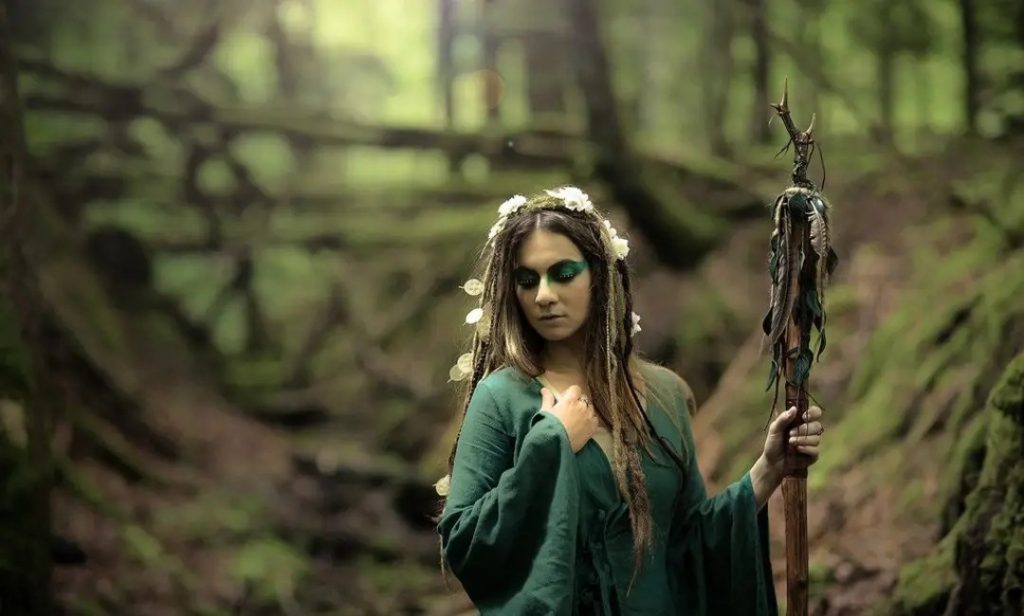

Read More: Unveiling the Intriguing Practice of Self-Humiliation Rituals in Witchcraft
The Ancient Origins of Spring Equinox Rituals
The origins of Spring Equinox rituals can be traced back to ancient civilizations and their deep connection to the cycles of nature. These rituals were often rooted in agricultural practices and celestial observations, as well as spiritual and religious beliefs. Here are some key origins of Spring Equinox rituals:
- Agricultural Significance: In many early agricultural societies, the Spring Equinox marked the transition from winter to spring, signaling the time to prepare the land for planting crops. The equinox was a critical moment when people needed to assess the changing seasons and synchronize their agricultural activities with the Earth’s cycles.
- Celebration of Rebirth: The arrival of spring, with its blossoming flowers, returning wildlife, and lengthening days, was seen as a symbol of rebirth and renewal. Spring Equinox rituals were a way to celebrate the awakening of the natural world after the dormancy of winter. These celebrations often included festivities, feasting, and communal gatherings.
- Sun Worship and Cosmology: Many ancient cultures observed the equinoxes as important celestial events, marking the moments when the sun’s path crosses the celestial equator. These events were linked to deities associated with the sun and were often integrated into religious and spiritual practices. Temples, monuments, and sacred sites were often aligned with the sun’s position during equinoxes.
- Mythology and Legends: Spring Equinox rituals frequently incorporated myths and legends that depicted the struggle between light and darkness, life and death. These stories reflected the cosmic balance inherent in the changing of the seasons and were used to explain the cyclical nature of life.
- Fertility and Fecundity: The equinox was often linked to concepts of fertility and fecundity, both in terms of the land and human reproduction. Many rituals involved practices aimed at ensuring bountiful harvests and abundant offspring, reflecting the importance of sustaining life.
- Transition and Transformation: The equinoxes, due to their role in balancing day and night, were seen as times of transition and transformation. Rituals during this period were designed to help individuals navigate personal changes and growth, aligning their inner journey with the outer rhythms of nature.
- Cultural Adaptations: Over time, Spring Equinox rituals evolved and adapted as societies changed and religious beliefs shifted. Different cultures added their own unique elements and symbolism, resulting in a diverse array of practices that continue to be observed today.
In conclusion, the origins of Spring Equinox rituals are deeply rooted in humanity’s intimate relationship with the natural world. These rituals emerged as ways to celebrate the changing seasons, honor the cycles of life and death, and connect with the cosmos. Whether through agricultural observances, sun worship, mythological narratives, or rites of fertility, Spring Equinox rituals serve as a testament to the enduring human desire to harmonize with the Earth’s rhythms and find meaning in the ever-changing tapestry of existence.
The Significance Of Spring Equinox Rituals
The significance of Spring Equinox rituals spans across cultural, spiritual, and symbolic realms, embodying themes of renewal, balance, connection, and transformation. These rituals hold deep meaning for individuals and communities, serving as a bridge between humanity and the natural world. Here, we delve into the multifaceted significance of Spring Equinox rituals:
- Renewal and Rebirth: The Spring Equinox marks a pivotal moment when nature emerges from the grip of winter’s dormancy. Just as plants push through the thawing ground to bloom, Spring Equinox rituals celebrate the renewal of life. These rituals remind us of the cyclical nature of existence, offering a sense of hope, optimism, and the potential for personal rejuvenation.
- Balance and Harmony: The equinox represents a delicate equilibrium between light and darkness, day and night. Spring Equinox rituals emphasize the importance of balance in our lives. As we witness the natural world find its equilibrium, we’re encouraged to seek harmony within ourselves and our surroundings. This balance extends to emotional, spiritual, and physical aspects, urging us to assess and align our lives.
- Connection to Nature: Spring Equinox rituals deepen our connection to the Earth’s rhythms and cycles. By participating in these practices, we acknowledge our interdependence with the natural world. This connection fosters a sense of respect, awe, and humility, reminding us that we are part of a larger web of life that requires care and stewardship.
- Spiritual and Cosmic Significance: For many cultures, the equinox holds spiritual and cosmic significance. It often represents a moment of celestial alignment, symbolizing the interplay between the heavens and Earth. Spring Equinox rituals may involve the worship of deities associated with the sun or celestial events, fostering a connection to the divine and the mysteries of the universe.
- Personal Growth and Intentions: Spring Equinox rituals offer a meaningful opportunity for introspection and setting intentions. Just as nature undergoes transformation, these rituals encourage individuals to reflect on their own personal growth journeys. By planting seeds of intention, participants align their aspirations with the regenerative energy of the season, propelling themselves forward with purpose.
- Cultural Traditions: Throughout history, diverse cultures have developed unique Spring Equinox rituals that reflect their values, beliefs, and experiences. These rituals provide a sense of continuity and identity, passing down ancient wisdom and practices from one generation to the next. They also foster a sense of community, uniting people in shared celebrations.
- Healing and Purification: Spring Equinox rituals often involve practices of cleansing and purification. Just as nature sheds its old, Winter-dormant layers, participants engage in activities to release negativity, cleanse their living spaces, and purify their minds and bodies. This act of cleansing signifies a fresh start and the removal of stagnant energy.
- Celebration of Diversity: Spring Equinox rituals showcase the richness of human cultural diversity. The various ways in which different societies celebrate this event highlight the creativity and adaptability of humanity in responding to nature’s rhythms. This celebration of diversity fosters cross-cultural understanding and appreciation.
In essence, Spring Equinox rituals hold profound significance as they connect us to the timeless cycles of nature, inspire personal growth, and celebrate the beauty and wonder of the world around us. Through these rituals, we tap into the inherent wisdom of the Earth and honor our place within the grand tapestry of existence.
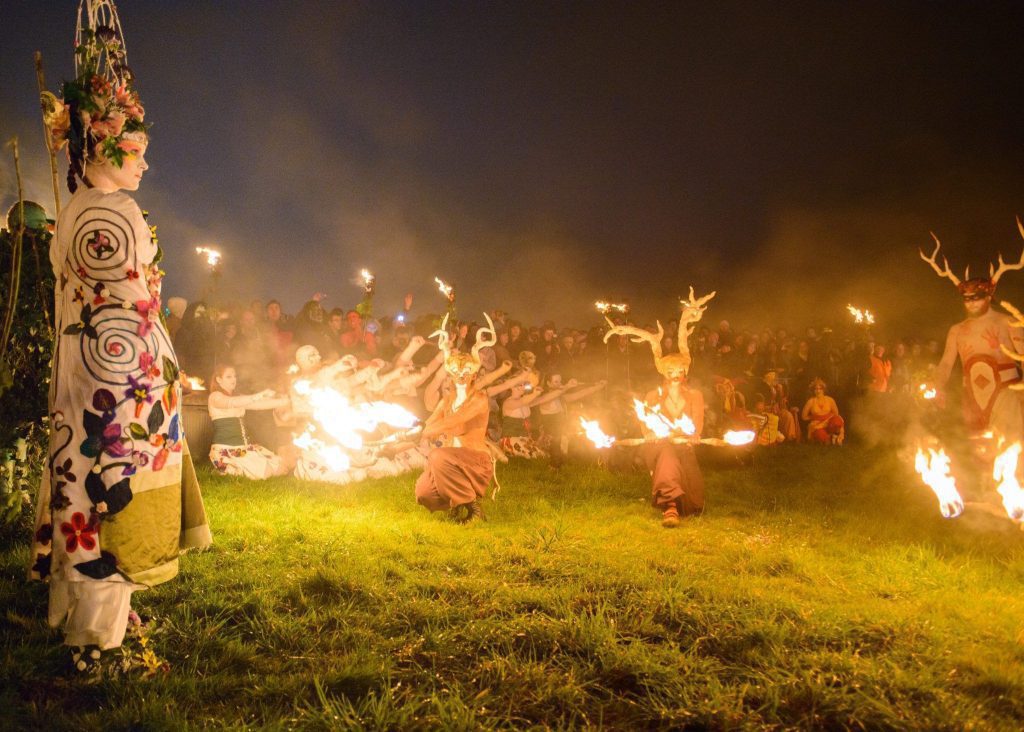

Herbs for Witchcraft: Enhancing Your Magical Practice Using Nature’s Mystical Allies
10 Most Common Spring Equinox Rituals
There are many different spring equinox rituals, but some of the most common include:
- Sunrise Meditation: Begin the day of the equinox by welcoming the sunrise with a guided meditation. Find a serene outdoor spot or a room with a view of the rising sun. As the sun’s rays touch your skin, focus on inner renewal and set positive intentions for the season ahead.
- Egg Painting: Decorate eggs with vibrant colors and intricate patterns to symbolize rebirth and transformation. You can then place these eggs in a prominent location in your home as a visual reminder of the renewal happening both inside and outside.
- Seed Planting Ceremony: Gather friends and family to plant seeds in a garden or pots, nurturing them as they grow. As you tend to the seeds, reflect on your own personal growth and the intentions you wish to cultivate.
- Nature Walk and Offering: Take a mindful walk in nature, collecting natural materials like leaves, flowers, and twigs. Create a small altar or offering space outdoors and arrange these items as a token of gratitude for the Earth’s awakening beauty.
- Equinox Feast: Prepare a meal using fresh, seasonal ingredients to honor the return of abundance. Share the feast with loved ones and discuss the significance of the equinox and the cycles of nature.
- Fire Ceremony: Build a bonfire or light candles outdoors as the sun sets on the equinox. Write down things you wish to release or transform and cast them into the fire, symbolizing the shedding of the old to make way for the new.
- Spring Cleaning Ritual: Dedicate a day to deep cleaning your living space, focusing on decluttering and purifying. Open windows to let in fresh air and use natural cleansing agents like herbs or essential oils for a sensory cleansing experience.
- Meditative Gardening: Spend time tending to your garden mindfully, acknowledging the Earth’s awakening. As you care for the plants, visualize your own growth and envision the positive changes you want to see in your life.
- Equinox Circle Dance: Organize a group circle dance, where participants join hands and move in a circular motion, symbolizing unity and the cyclical nature of life. Choose music that resonates with the season’s themes of renewal and growth.
- Gratitude Ritual: Create a gratitude journal or altar where you write down or display things you’re grateful for. Take a few moments each day leading up to the equinox to express appreciation for the blessings in your life.
No matter how you choose to celebrate the spring equinox, it is a time to reflect on the past and look forward to the future. It is a time to plant seeds of hope and to let go of anything that is holding you back. It is a time to celebrate the beauty of nature and the power of renewal.
Here are some additional ideas for spring equinox rituals:
- Go for a walk in nature and take some time to appreciate the beauty of the season.
- Spend time with loved ones and friends.
- Do something that you have always wanted to do but have been too afraid to try.
- Make a donation to a charity that you support.
- Volunteer your time to help others.
The spring equinox is a time of new beginnings, so make the most of it!
Symbolic Items to Incorporate in Spring Equinox Rituals
Here are some universally symbolic items that can be incorporated into inclusive spring equinox rituals:
- Flowers – Represent new growth, beauty of spring, abundance. Garden bouquets, flower crowns, potted daffodils work.
- Eggs – Symbol of fertility and new life across traditions. Can decorate, eat, include in blessings/offerings.
- Seeds – Potential for future harvests and cycles of rebirth evident in tiny seeds. Planting ceremonies honor.
- Water – Purification, life sustaining fluids, watering parched earth. Use in cleansing rituals via rosewater, sprinkling bowls.
- Greens – Fresh new greenery speaks to renewal of plant life after winter dormancy. Wearing leaves, woven into altars.
- Fire – Transformative element, warmth, light extending days. Lighting candles together, jumping over bonfires if safe.
- Sun – Giver of light and life, pivotal seasonal changes centered around sun. Sun salutations, suncatchers as decor.
- Animals – Awakening wildlife represents spring’s arrival. Bird feathers, images, sounds incorporated respectfully.
- Fruits – Symbolizing earth’s bounty becoming ready. Dried fruits, cordials made from berries in cleansing rituals.
- Wind chimes – Musical reminder of breezes suggesting change of season, energetic clearing of old patterns.
Incorporating natural, non-denominational symbols in artifact or ritual gesture form helps create inclusive celebration.
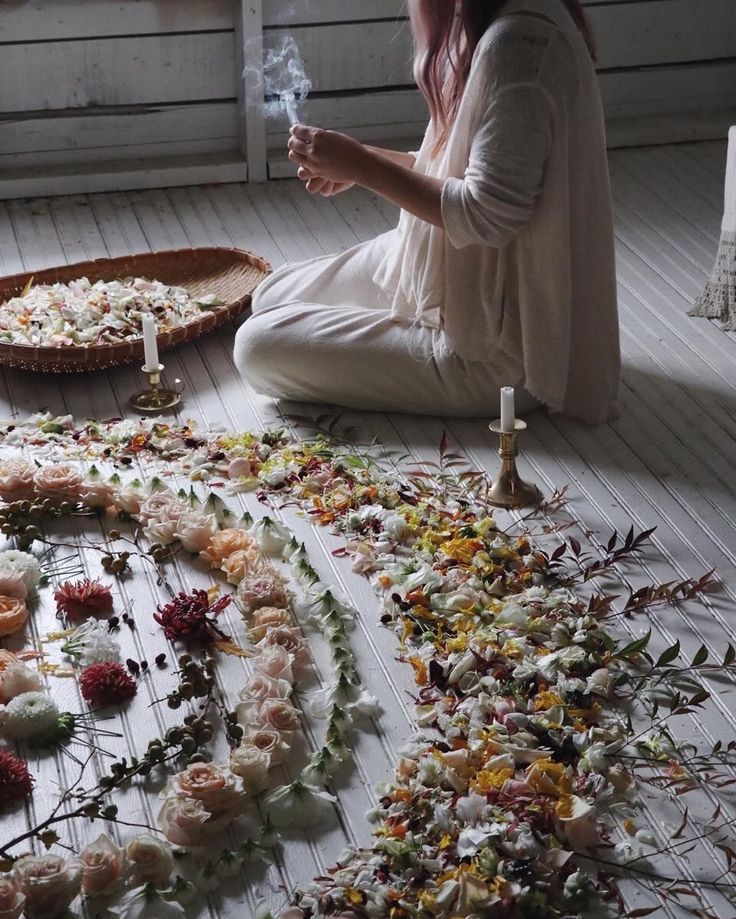

Recommended Resources to Learn More About Spring Equinox
Here are some good resources for learning more about spring equinox rituals:
Books:
- “The Spring Equinox” by Ellen Evert Hopman – A comprehensive guide to rituals and ceremonies practiced across ancient cultures and modern Pagan traditions.
- “Celebrating the Great Mother” by Caitlín Matthews – Discusses ritual practices involving fertility and feminine energy tied to spring equinox.
- “The Wheel of the Year” by Paul Ralph – Explores the history and celebration of ancient festivals like Beltane and Ostara related to spring equinox.
Websites:
- Encyclopedia Britannica – In-depth overview of spring equinox traditions from archaeological and historical perspectives.
- Learn Religions – Articles on rituals from different religions like Wicca, Paganism, and Indigenous practices associated with the vernal equinox.
- Ancient Origins – Archaeological evidence and modern celebrations of the spring equinox across ancient Celtic, Greek, and Native American societies.
- Farmers’ Almanac – Guide to organizing seasonal rituals including recipes, crafts,, and activities centered on welcoming spring.
Blogs:
- Serenity Cove – first-person accounts of meaningful ways to celebrate Ostara including blessings, affirmations, and altar crafting.
- Patheos Pagan Channel -Blog posts from pagan community leaders describing their spring equinox rituals and spiritual significance.
- Sacred Trove – Compilation of vetted sources exploring both ancient and modern equinox traditions practiced in nature.
Podcasts:
- Gods & Radicals – Episode interviews on radical earth-based spirituality pertaining to the vernal equinox.
- Sacred Tree Podcast – Informative discussions linking scientific and folkloric understandings of seasonal changes.
Considerations To Take Before Engaging in Spring Equinox Rituals
Before engaging in any rituals, including Spring Equinox rituals, it’s important to consider several factors to ensure a safe, meaningful, and respectful experience. Here are some considerations to keep in mind:
- Cultural Sensitivity: If you’re adopting or adapting a ritual from a specific culture or tradition, take the time to learn about its origins, significance, and proper practices. Approach the ritual with respect and avoid cultural appropriation.
- Personal Beliefs: Consider your own beliefs and values. Choose rituals that resonate with you and align with your spiritual or philosophical outlook. Make sure the rituals you choose feel authentic and meaningful to your personal journey.
- Safety First: Some rituals involve fire, candles, or outdoor activities. Prioritize safety by taking precautions to prevent accidents or injuries. Ensure proper ventilation for indoor rituals involving smoke or incense.
- Allergies and Sensitivities: Be mindful of any allergies or sensitivities you or participants may have when selecting materials for rituals, such as flowers, herbs, or essential oils.
- Environmental Respect: When engaging in outdoor rituals, respect the environment. Avoid damaging or removing plants, disturbing wildlife, or leaving behind any litter. Leave the natural space as you found it.
- Inclusivity: If you’re practicing rituals with a group, ensure that they are inclusive and welcoming to all participants, regardless of their backgrounds or beliefs.
- Permissions: If you’re practicing rituals in a public space or on someone else’s property, ensure you have the necessary permissions and follow any rules or regulations.
- Emotional Readiness: Some rituals may involve introspection, emotional release, or confronting personal challenges. Make sure you are emotionally prepared for the experience and have a support system if needed.
- Intentions and Ethics: Reflect on your intentions behind the ritual. Make sure your intentions are positive and aligned with ethical principles, promoting well-being and growth for yourself and others.
- Adaptation: Feel free to adapt rituals to suit your needs, preferences, and circumstances. The core essence of a ritual is its intention and symbolism, so modifications can be made while still honoring the spirit of the practice.
- Time and Space: Set aside an appropriate amount of time for the ritual, ensuring you won’t be rushed or interrupted. Choose a comfortable and quiet space where you can fully engage in the experience.
- Research: Before trying a new ritual, take the time to research and understand its significance, steps, and potential effects. This helps you approach the ritual with mindfulness and knowledge.
Taking these factors into account helps ensure spring equinox rituals are performed responsibly, and respectfully and benefit the well-being of both human and natural participants. Safety, consent, and ethical practices should be top priorities.
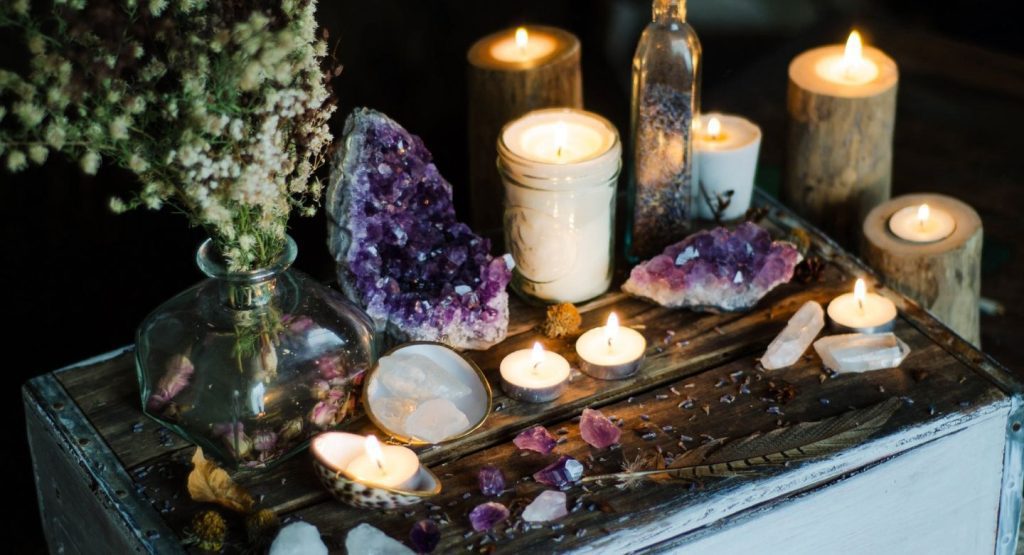

Conclusion
The spring equinox serves as a powerful reminder of the interconnectedness between humanity and the natural world. Through rituals that celebrate renewal, fertility, and balance, individuals honor the cyclical rhythms that shape our lives. Whether by embracing the symbolism of the rising sun, decorating eggs as a metaphor for creation, or setting intentions for personal growth, these rituals provide a sense of purpose and connection to the larger tapestry of existence. As the world awakens from the slumber of winter, the spring equinox rituals offer an opportunity to participate in the eternal dance of life, celebrating both the external and internal transformations that unfold with the changing seasons.

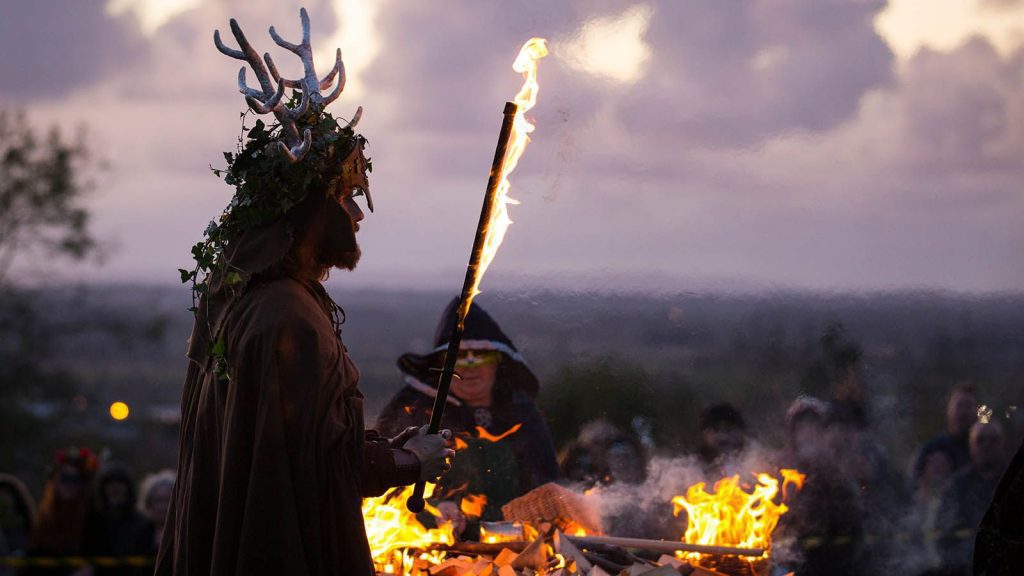
amazing
Pingback: 10 Spring Equinox Rituals to Welcome the New Se...